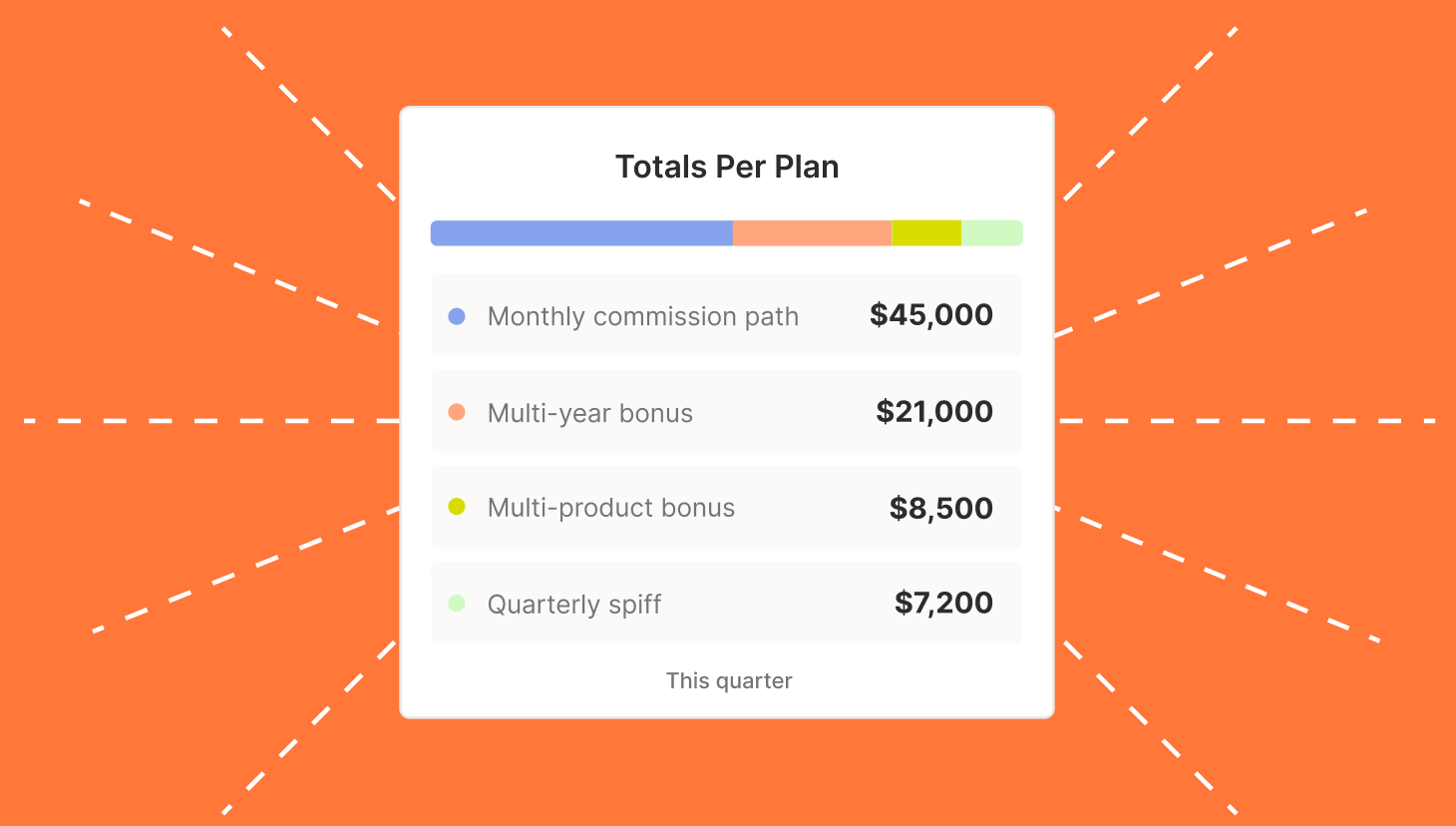An appropriate commission tracking process allows businesses to improve performance by rewarding their employees. Unfortunately, many organizations use ineffective methods to manage sales compensation, which can slow down scaling efforts. Relying on outdated methods to track earnings based on a commission plan increases the risk of errors, low morale for your team, and delays.
So, how can you ensure you save time, reduce mistakes and motivate your employees?
Read on to learn three ways to clean up your commission tracking process and improve your organization’s performance.
Challenges to the commission tracking process
Information silos
First up: information silos. These occur when divisions or departments fail to share vital information. Information silos can hinder efficiency and growth in your company. As a result, missed opportunities, lack of synergy, and duplications of efforts may follow. Spotting and correcting information silos can allow you to open critical communication lines in your company and enhance performance.
Potential for error
Using outdated methods, such as spreadsheets or manual commission tracking, can lead to errors. According to the Corporate Financial Institute (CFI), 88% of spreadsheets have errors. These mistakes can cost your business losses to productivity or even lawsuits. Commission tracking inaccuracies can lead to poor organization, confusion amongst sales reps, and disincentivized top performers. Other issues with spreadsheets may include:
- Challenges in growing your company and the need to introduce more complicated sales compensation plans
- Flawed commission payments due to miscalculations from spreadsheet errors
- Minimized visibility into the tracking process for the commissionable reps, leading to a lack of transparency
Payrolls and accounting barriers
Sometimes the commission tracking process can be cumbersome when using manual methods. Even more, your accounting team may actually begin to fear each sales cycle’s end. The team will need to remember every employee’s comp plan. When an error happens, they end up getting blamed for commission inaccuracies. Payroll and accounting staff experience the following barriers:
- Time-consuming and cumbersome commission calculations
- Auditing and compliance challenges
- The payroll and accounting team has to deal with sales reps’ anger
- Manual commission tracking will likely result in miscalculations
Failure to achieve your organization’s goals
It becomes a challenge to meet your company’s vision if the accounting and sales teams spend significant time resolving commission errors. As a result, various departments in your organization start looking backward to solve disputes instead of focusing on business growth and expansion.
You risk suffering loss when your best sales account executives quit due to commission miscalculation frustrations. This can damage your sales and negatively impact your return on investment. But how can you make the commission tracking process straightforward and avoid the issues explained above?
Below, we share three solutions.
Standardize It
Document and standardize the tracking process steps to ensure you don’t make unnecessary mistakes. This is critical because when you need someone else to step in and fill in for you, they’ll know exactly what to do. Having multiple people serving as the “commission person” while following the same procedure will streamline the process and reduce confusion. Here are ways you can achieve better compensation management:
Tailor your report: No sales rep wants to go through bulky data to view their earnings. This should be quick and stress-free. You want to break down earnings by team member or region. With a commission tracking solution, this becomes simple to perform. Just pull customized data and send it to the appropriate individuals using a commission tool.
Label data clearly: Proper data labeling ensures all stakeholders can understand the numbers hassle-free. Software automation can allow you to customize an easy-to-understand dashboard for everyone to comprehend the data.
Create a logical flow: Ensure your information order is sensible for your sales reps. With sales commission software, you can set up customized mapping and reporting during onboarding and leave the rest up to the system.
Simplify It
Next, simplify it. Simplifying your commission tracking process will eliminate inaccuracies and allow sales reps to focus on the organization’s goals. Review the steps you created from standardizing sales compensation and see what needs improvement. Here are things you could adjust to make it simple:
Automate calculations: Feed your system of choice the required calculation algorithms and the necessary estimates to get the work done. One of the primary challenges of using a commission tracking spreadsheet is that it requires a heavy lift to combine data and calculate. They are complicated, and not everyone may understand how to use them. This often leads to a gatekeeper situation for commissions.
Provide real-time updates: This allows you to incorporate a large data volume and monitor it continuously. All the information you need is available in a few clicks. Real-time data enables you to accurately monitor earnings and stay privy to any late payments and sales rep bonuses. Most commission tracking platforms will offer integrations to popular CRMs. Just make sure they’re actually real-time and not data that only updates once a day.
Automate It
Lastly, lead generation has become highly competitive. Organizations need to find cutting-edge solutions that keep their teams happy and hungry for more. Automating your commission tracking process will help motivate your staff and maintain diverse individual commission goals, channels, quotas, and sales territories.
An effective sales commission software can help infuse more enthusiasm in your employees, reinvent your commission reporting and open up new possibilities. Efficient commission tracking software helps you with the following:
- Accurate quota setting
- Timely and insightful report delivery
- Dispute resolving and answering questions
- More sales insights
- Little or no manual intervention
- Behavior and sales progress analytics in real-time
- Implement and track an ad-hoc SPIF or bonus
- Complicated compensation plan management
- Analyze how the new plan will impact your organization
- Introduce a new comp plan and scale
Clear up your compensation formulas with QuotaPath
We end with this. Don’t let your commission tracking process hinder your business.Instead, let QuotaPath streamline your sales compensation process while motivating and retaining top-performing reps. Try our free commission tracking software. Or, schedule a time with a member of our team to see how we can take on comp management for your organization.


